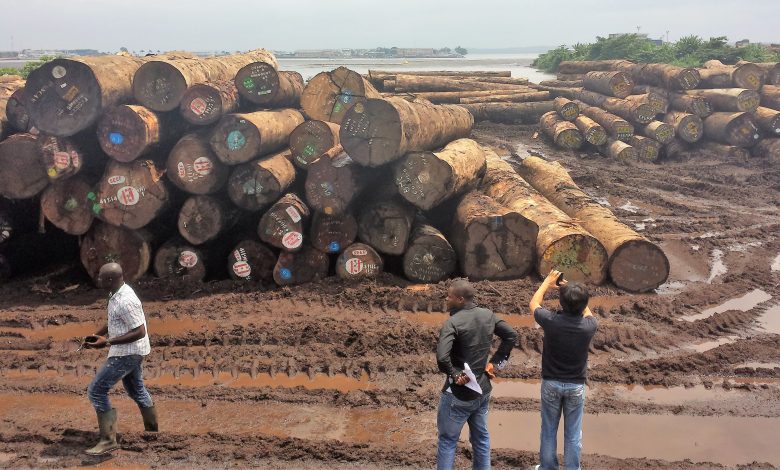Cameroon To Witness Drop In Tree Cultivation As Timber Export Falls

There was a negative drop by 2.4 percent in tree cultivation and reforestation in 2019 as compared to 2018.
Reports indicate that the downward trend is expected to continue in 2020, which is projected to witness a negative 6.4 percent drop.
According to Cameroon’s Ministry of Economy, Plan and Regional Development, this negative trend is influenced by the world economy which is faced with a debilitating sanitary crisis due to the coronavirus pandemic which is expected to accentuate during the current year.
The ministry notes that the slow-down of activities in the tree cultivation sector can be explained away by the drop in timber exportation to the principal world consumers namely, China and the European Union.
In effect, Cameroon’s timber export to the European Union, situated at 15,000 tons actually dropped by 14 per cent in 2019 compared to 2018.
As concerns timber exports to China, there was a drop of 21 per cent in 2019 compared to 2018 and this trend is expected to continue during the current year, 2020.
The drop in the demand for Cameroon timber by China, according to the International Tropical Timber Organisation, is explained by the trade war between China and the United States of America, the volatility of the Chinese currency the Yuan, the reinforcement of environmental inspections and the reduction in internal demand.
Though the government may see this drop in the demand for Cameroonian timber on the international market as a minus due to a diminution in the revenue contributes to the national treasury, the national community, especially the rural communities from which the timber is harvested, are gladdened by this trend as it would occasion a reduction in the destruction of their forests, which are their main source of livelihood.
“What did we actually benefit from the increase in timber export tonnage during the past years? They only succeeded in destroying our ecosystem and in chasing away the animals on which our hunters depended for a livelihood.
“Let international demand for our timber continue to drop, I pray”, declared a trapper on the outskirts of Edea in the Littoral Region of Cameroon.
On the other hand, some local communities are not happy by the drop in tree cultivation which is an obligation on timber exploiting companies as they are expected to plant trees within the concessions from which they harvest their timber.
“I think there should be a new proviso in their timber licensing agreements that would oblige them to continue planting trees even when they are not harvesting.
“This would ensure continuous afforestation even when their activities are on recess”, opined an official in the Ministry of Forestry and Wildlife.
Support Our Journalism
There are millions of ordinary people affected by conflict in Africa whose stories are missing in the mainstream media. HumAngle is determined to tell those challenging and under-reported stories, hoping that the people impacted by these conflicts will find the safety and security they deserve.
To ensure that we continue to provide public service coverage, we have a small favour to ask you. We want you to be part of our journalistic endeavour by contributing a token to us.
Your donation will further promote a robust, free, and independent media.
Donate HereStay Closer To The Stories That Matter




